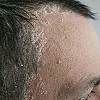Vitamin D has the potential to ward off a number of serious diseases
Vitamin D would be essential if it just protected bone health. But researchers have discovered that it’s active in many other tissues and cells and controls many genes, including some associated with cancer, autoimmune disease, and infection. Hardly a month goes by without news about the risks of too little vitamin D or about a potential role for the vitamin in warding off diseases, including breast cancer, multiple sclerosis, and even schizophrenia. More trials are needed to confirm vitamin D’s benefits and risks. In the meantime, the evidence is so compelling that some experts already recommend at least 800 to 1,000 IU of vitamin D per day for adults.
To continue reading this article, you must log in.
Subscribe to Harvard Health Online for immediate access to health news and information from Harvard Medical School.
- Research health conditions
- Check your symptoms
- Prepare for a doctor's visit or test
- Find the best treatments and procedures for you
- Explore options for better nutrition and exercise
I'd like to receive access to Harvard Health Online for only $4.99 a month.
Sign Me UpAlready a member? Login ».
Disclaimer:
As a service to our readers, Harvard Health Publishing provides access to our library of archived content. Please note the date of last review or update on all articles.
No content on this site, regardless of date, should ever be used as a substitute for direct medical advice from your doctor or other qualified clinician.












